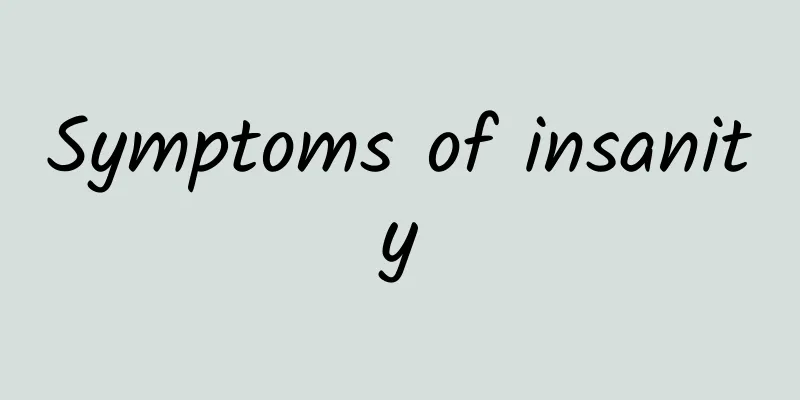What to do if only the root of the tooth is left after tooth decay

|
Tooth decay is a disease that people often encounter in their daily lives. Although it is not a serious illness, the pain is very troublesome and some people even have problems eating. But what if all that’s left of a decayed tooth is the tooth root? Many people feel embarrassed when this happens. In fact, in clinical practice, doctors will most likely recommend that patients have their teeth extracted, because sawtooth is contagious, and removing rotten tooth roots is beneficial to protecting the patient's normal teeth. Generally speaking, when tooth decay has corroded deep into the tooth root, the apical lesion is extensive, and the tooth has become a lesion that will cause other diseases, it is meaningless to retain the tooth and it needs to be extracted for treatment. Tooth decay development However, natural teeth are the best, so the principle for tooth decay is to fill them if possible. Doctors will only recommend extraction if there is really no point in keeping them. The teeth will gradually corrode When tooth decay occurs, the crown of the tooth will be corroded first, resulting in a hole. Then the dental nerve will be infected and the crown will be completely corroded, until the root of the tooth is also corroded and the tooth is completely lost. If pulpitis is not treated, it may become infected and lead to apical periodontitis. Therefore, tooth decay must be treated as early as possible. When only the tooth root is left due to tooth decay, in most cases the dental nerve has already died and is easily infected with apical periodontitis. Apical periodontitis In addition, the tooth roots will continue to be corroded by bacteria until they completely disappear. If the alveolar bone is not as stable as the tooth roots for a long time, alveolar bone atrophy and gum decline will occur. It is recommended to remove the tooth root and replace it with a denture. Considering that porcelain teeth require grinding off adjacent teeth, which will endanger the health of adjacent teeth, and the pressure of removable dentures will accelerate the atrophy of alveolar bone, dental implants have independent roots and do not have these two problems. In addition, the roots can prevent the atrophy of alveolar bone, so dental implants are a good choice to repair missing teeth. Measures to protect teeth in daily life In addition to the well-known methods of brushing your teeth every day and rinsing your mouth after meals, there are some other self-care measures to protect your teeth. 1. Remove food obstructions between teeth promptly. During the process of chewing food, food fibers are often caught in the gaps between teeth, which are harmful to both teeth and periodontal tissues. We can remove it by brushing our teeth to maintain oral hygiene. 2. Provide teeth with adequate nutrition. The development of teeth cannot be separated from a variety of nutritious foods. Therefore, whether adults or children, the diet should be diversified and not picky. 3. Develop correct chewing habits. The correct way to chew is to use both sides or alternate sides. 4. Correct bad habits that are harmful to your teeth. Some infants and young children have misaligned and deformed teeth due to habits such as sucking their thumbs, licking their teeth, clenching their teeth, breathing with their mouths open, and biting their lips. Correcting bad habits is good for dental health. 5. Tea helps prevent tooth decay. The main ingredients of tea that can prevent tooth decay are substances such as fluoride and catechol. Fluoride ions can convert hydroxyapatite in tooth enamel into fluoroapatite, improving the structure of tooth enamel and enhancing its acid resistance; substances such as catechol can inhibit the proliferation of Streptococcus mutans (i.e., caries-causing bacteria) in the oral cavity. Drinking tea regularly or gargling with tea can protect your teeth and clean your mouth. Currently in many European and American countries, drinking tea after meals is used as one of the measures to solve bad breath caused by eating too much cheese and meat. After eating garlic, chewing some tea leaves immediately can also help remove odor. 6. It is important to brush your teeth before going to bed. After people fall asleep, bacteria can easily multiply as the temperature and saliva secretion in the mouth decrease. Sugar ferments to produce acid, which corrodes teeth and forms cavities. Therefore, brushing your teeth as thoroughly as possible before going to bed plays an important role in preventing dental diseases. 7. Some medicines are harmful to the health of teeth. Drugs such as tetracycline and chloramphenicol can cause yellowing of teeth or incomplete development of tooth enamel, which can make tooth decay more likely to occur in the future. Therefore, do not take these drugs in large quantities or for a long time. 8. Prevent trauma. Do not bite hard objects with your teeth to avoid damaging your teeth. 9. Check regularly. Regular dental check-ups can prevent dental diseases from developing. It is best for adults to have a dental check-up once a year and treat dental diseases promptly if discovered. |
<<: How to calm down an anxious mind
>>: What to do if tooth root necrosis
Recommend
What to do if you have insomnia and loss of appetite? Find the cause in time
Many people suffer from insomnia, which has a gre...
Precautions for the treatment of urticaria
The treatment of urticaria should aim to block th...
What should people with kidney deficiency do?
From the perspective of Western medicine, the kid...
How long after a meal is best
Traditional Chinese medicine can not only be used...
What are the symptoms of cerebellar atrophy
The most common symptom of cerebellar atrophy in ...
Nursing measures for emphysema
Emphysema is a type of lung disease, which is mai...
Splenic marginal zone lymphoma
Slippery is a very serious disease problem becaus...
Can cactus cure stomach problems?
The treatment of stomach problems relies on 30% t...
White hair grows here, reminding you to nourish your kidneys
Hair growth comes from qi and blood. When the Qi ...
Can conjunctival edema be cured?
Conjunctival edema is a manifestation of conjunct...
What is the medicinal value of toad grass?
Maybe everyone is familiar with Toad Grass. This ...
What should the elderly with bronchiectasis not eat?
Nowadays, there are more and more elderly people ...
Prevention and treatment of cervical spondylosis
Cervical spondylosis is a disease that many peopl...
Pain in left rib cage
There are many possible reasons for the pain in t...
What is the cause of red spots on male genitals?
If there are red spots on the male genitals, it i...









